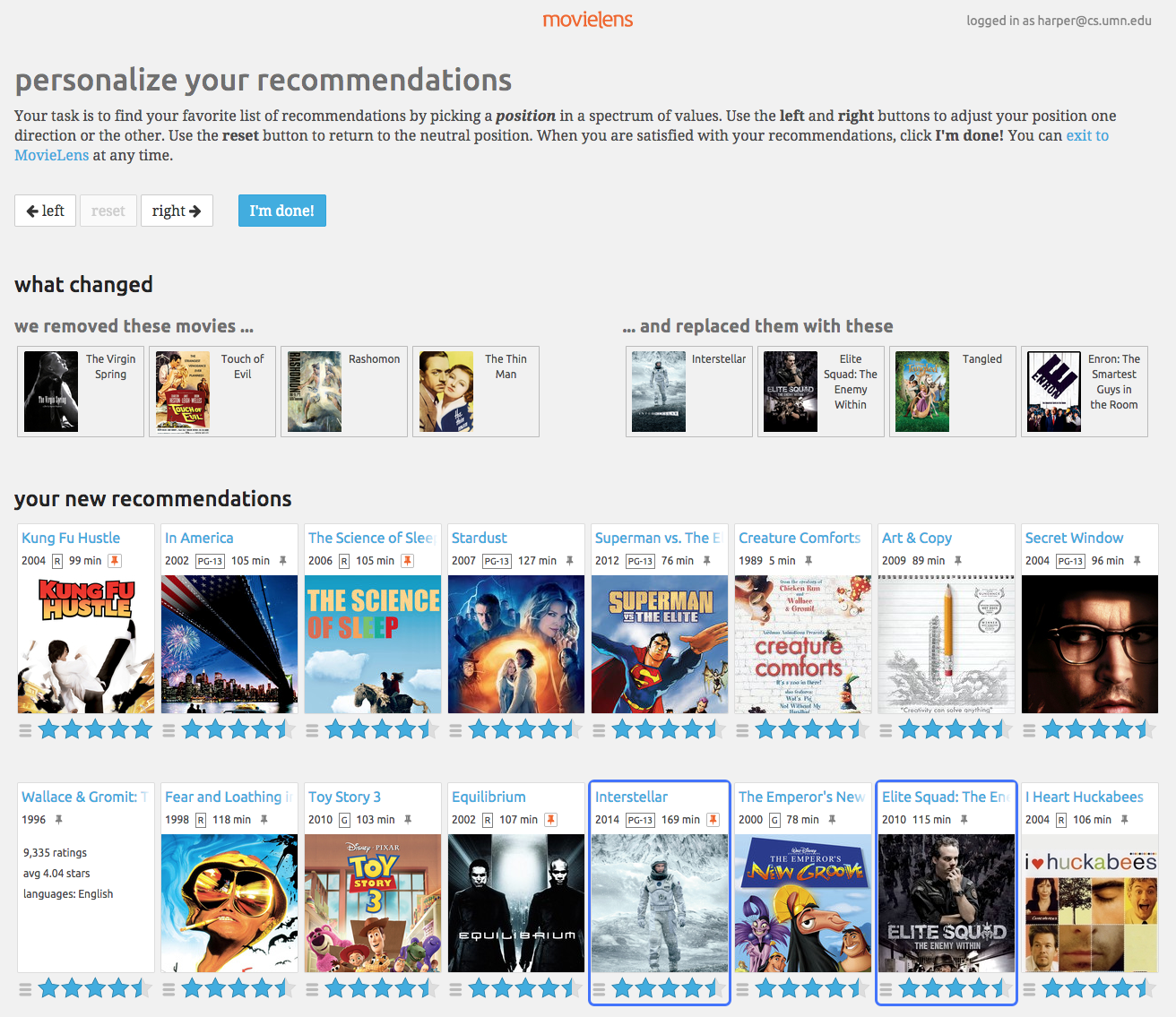Putting Users in Control of their Recommendations

Recommender systems provide personalized recommendations of content to people based on their previous preferences in the same domain. Typically, people have no explicit control over the factors underlying this recommendation process. Thus, if the recommender fails to fully capture an individual's preferences or if the person's preferences change, it is hard to communicate this opportunity to improve to the recommender.
To address this challenge, we built and evaluated a system that lets people control the popularity and recency of movies in their recommendation list. Using our system, people were able to express preferences like "show more popular items" or "show less recent items" in the domain of movies.
Our results indicated that people prefer these user-tuned recommendations much more than their original recommender-generated list. We also observed that people diverge in their preferred settings, thus reinforcing the need for personalized or user-controlled recommenders.
Publication:
F. M. Harper, F. Xu, H. Kaur, K. Condiff, S. Chang, L. Terveen (2015, September). Putting users in control of their recommendations. In Proceedings of the 9th ACM Conference on Recommender Systems (pp. 3-10). ACM.